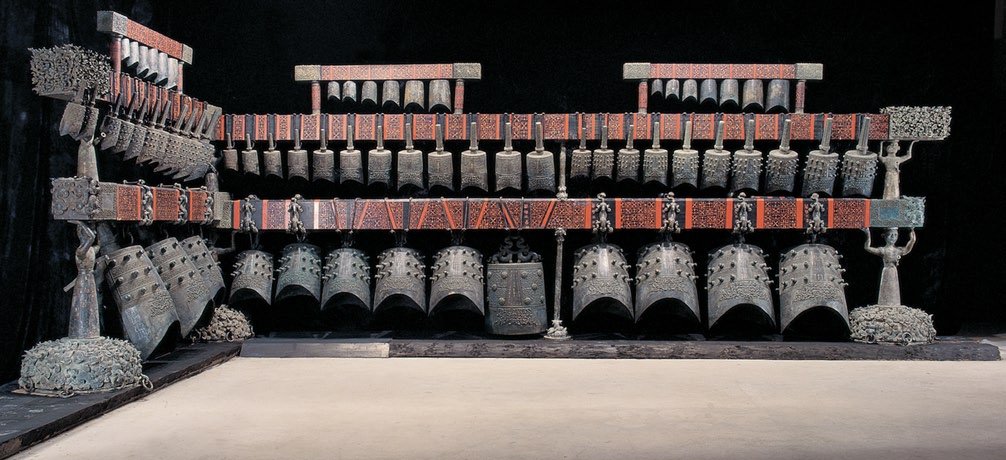|
- Home
- Bianzhong Bells
Bianzhong Bells

The famous Bianzhong bells were unearthed a couple of decades ago in Hubei Province. Archaeologists discovered the bells in the 2,400 year old tomb of ‘Marquis’ Yi along with a 125-piece orchestra and 25 musicians.
The set of 64 bells range in size from 8 inches to 5 feet tall and weigh a total of five tons. (In comparison, bells over 2-feet in height did not appear in Europe until about 1000 A.D.) The bells were precisely cast from a composite of 12.5% tin, 2% lead, and the remainder of copper.
The bells do not have clappers; they are sounded by striking the outer surface. The originals were inlaid with golden dragons and inscriptions that document sophisticated music theory.
What is scientifically interesting about the bells is that two distinct sounds can be obtained by striking two different nodal points. The concave shape of the bottom focuses the sound waves; and the bosses on the surface, which are more prominent on the originals, also help isolate the competing sounds.
The bells are preserved today in a humidity-controlled chamber at Hubei’s Provincial Museum and guarded by 30 soldiers. They were played in Hong Kong’s new Convention Centre on July 4, 1997 in a concert composed by Tan Dun. The concert is based on the poetry of Li Po, with the bells symbolizing the past and a children’s choir and the Asian Youth Orchestra musicians symbolizing the future.

